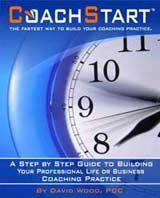MM 98: Make Your Business Economy-Proof
1. Announcements/Offers
What People are Saying About ’10 Super Coaches’
To find out how 10 ordinary coaches are earning $30,000 to $1.4 million per year, and how you can do it too, click here:
“I was working on a marketing strategy that was going to cost quite a bit of money when I bought the ebook. It made me realise there is a MUCH more direct, and less expensive method. Saved me several hundred pounds and gave me a kick up the rear end to do something else. Thanks!”
Neil Gilbranch, United Kingdom
“David, the product is awesome! I cannot express it any other way. I’m still digesting the nuggets on every page and relishing every interview. Thank you for the your brilliance in its development.”
Heather Fraser USA
Visit 10 Super Coaches
First Time Author Pre-Booked on Oprah???!!?
I’ve known Ariane for a little while and love what she is creating. Ariane is committed to helping people through life changes- big and small, personal and professional, even social and global! Her company, TheFirst30Days.com, covers dozens of these changes. She has recently published her foundational book, The First 30 Days; Your Guide To Any Change (and Loving Your Life More) . And before her first book is even published, she’s pre-booked on Oprah!
Go to Amazon and pick up a copy of this great book. If you don’t find it worth way more than you paid for it, contact us and I’ll mail you a check for your purchase price 😉
2. FEATURE: Make Your Business Economy-Proof
How is your coaching business doing in this slow economy?
Would you like to learn sound business practices that will boost your business
no matter what the economic conditions?
Think Positive
The first place to begin is with journaling. Buy a 99 cent notebook and start journaling about what was great the day before. Write one or two wonderful things from yesterday – even if it is that you walked your dog! It must be something that made you feel good and the bigger your sense of satisfaction and accomplishment, the better. Do this daily starting today.
The purpose of the above exercise is to keep you focused on the positive while you grow your business.
Get Accountable
Secondly, put in place someone that you can be accountable to. A spouse is a possible choice because they are tied to how well your business does, as long as it doesn’t bring up fights. Set up weekly meetings with your accountability person and go over the following:
1. Money received this week
2. Money received so far this month
3. Number of new clients this week
4. Number of new prospects this week (or number of
exploratory coaching sessions)
5. Number of new subscribers this week
These two steps, journaling and weekly accountability, may help you to overcome many blocks you might currently be up against.
Now that you have the basics in place, we can start on building your business to be recession-proof!
Find Your Niche
In building a business, you want to identify a niche. Don’t worry about being too specific because
your business will grow and expand to similar niches. However, starting out, you
will want to FOCUS on only one.
Here are some questions to get you started in finding the right niche for you:
1. Will it be fun?
2. Will they pay you? Can they afford you?
3. Are they experiencing pain or profit? (This is a good one. If they are experiencing pain, or a problem, how can you provide a solution? Or is there big profitability in what you’re helping them with?)
4. Can you find them? (This question will tell you if you are not being specific enough.)
5. How well are they served? (Do a lot of other businesses cater to them?)
6. Can I build alliances?
Find Your Clients
Okay, now that you have discovered your niche, it is time to start building your client base!
1. Start by listing everyone in your niche. Say you are catering to pet grooming salons, list all the salons you can find. Do you see a worldwide potential?
2. Using the list you have made, make your goal to get your newsletter to every one.
3. List all the trade publications and submit your articles for print.
4. Speak at the next conference.
5. Identify vendors and explore the possibility of a partnership or alliance.
6. Identify all national and global associations and contact about the possibility of an alliance.
Make sure that every step of the way you are journaling and holding weekly meetings with your accountability partner.
If you are clear on who your clients are, you live in their world, and you are very visible to them, you will be amazed at how quickly your coaching business will grow!
***
This is from David’s interview with Ernest Oriente in 10 Super Coaches Share Their Secrets if you are looking for more inspiration from successful coaches.
Action
1. Start a daily journal. Write what was great about the day before!
2. Find an accountability partner and schedule weekly meetings. (Could be a
spouse or close friend or a mentor coach.)
3. Define your niche.
4. Research any national or global association related to your niche.
5. Post the actions you will take at the blog.
6. What additional steps would you suggest your fellow coaches take? What is working for you right now? What has worked in the past? I invite you to share it on the blog.
***
Enjoy!

P.S. Got a comment on this article? Please add it to the blog.




